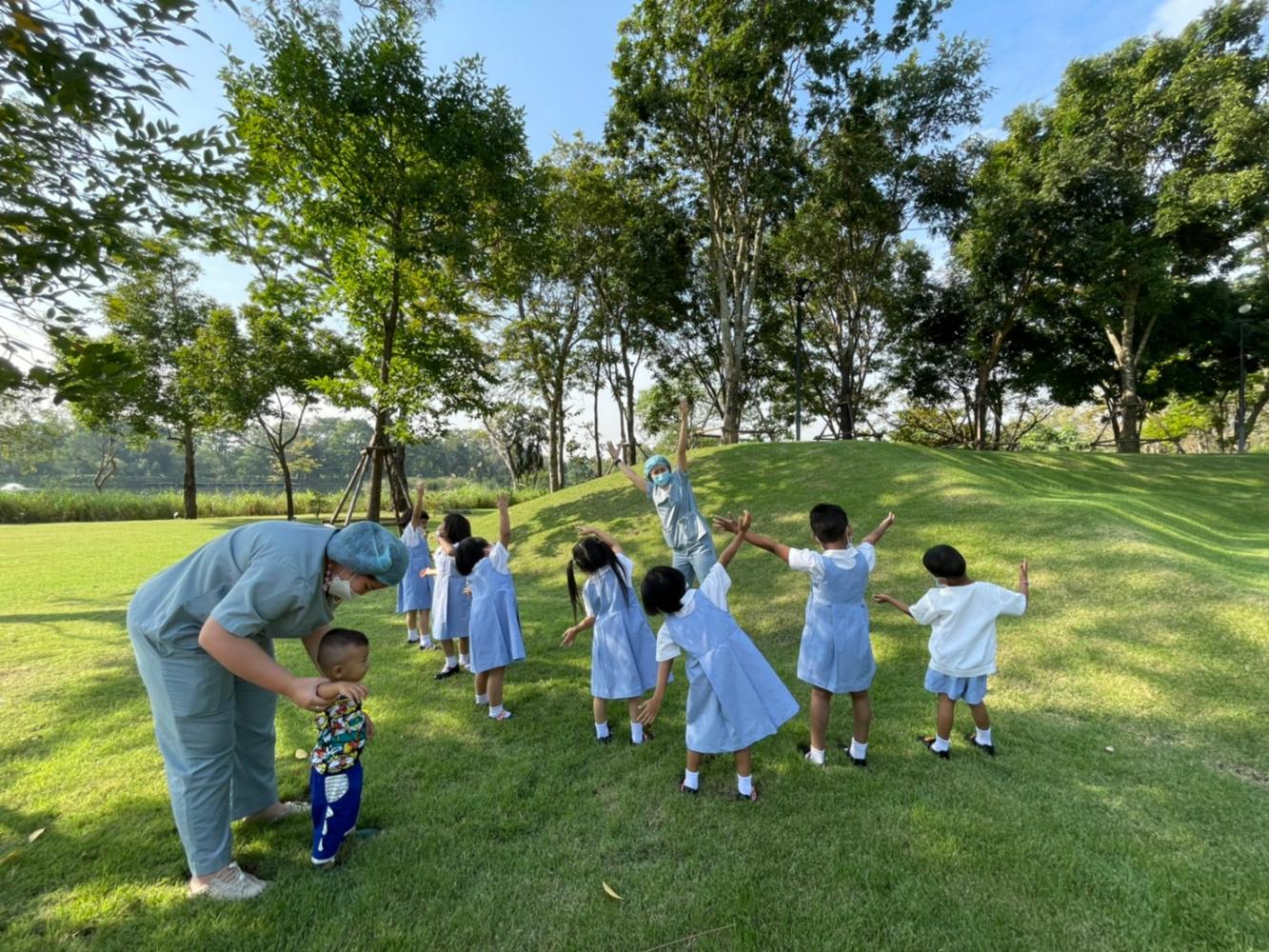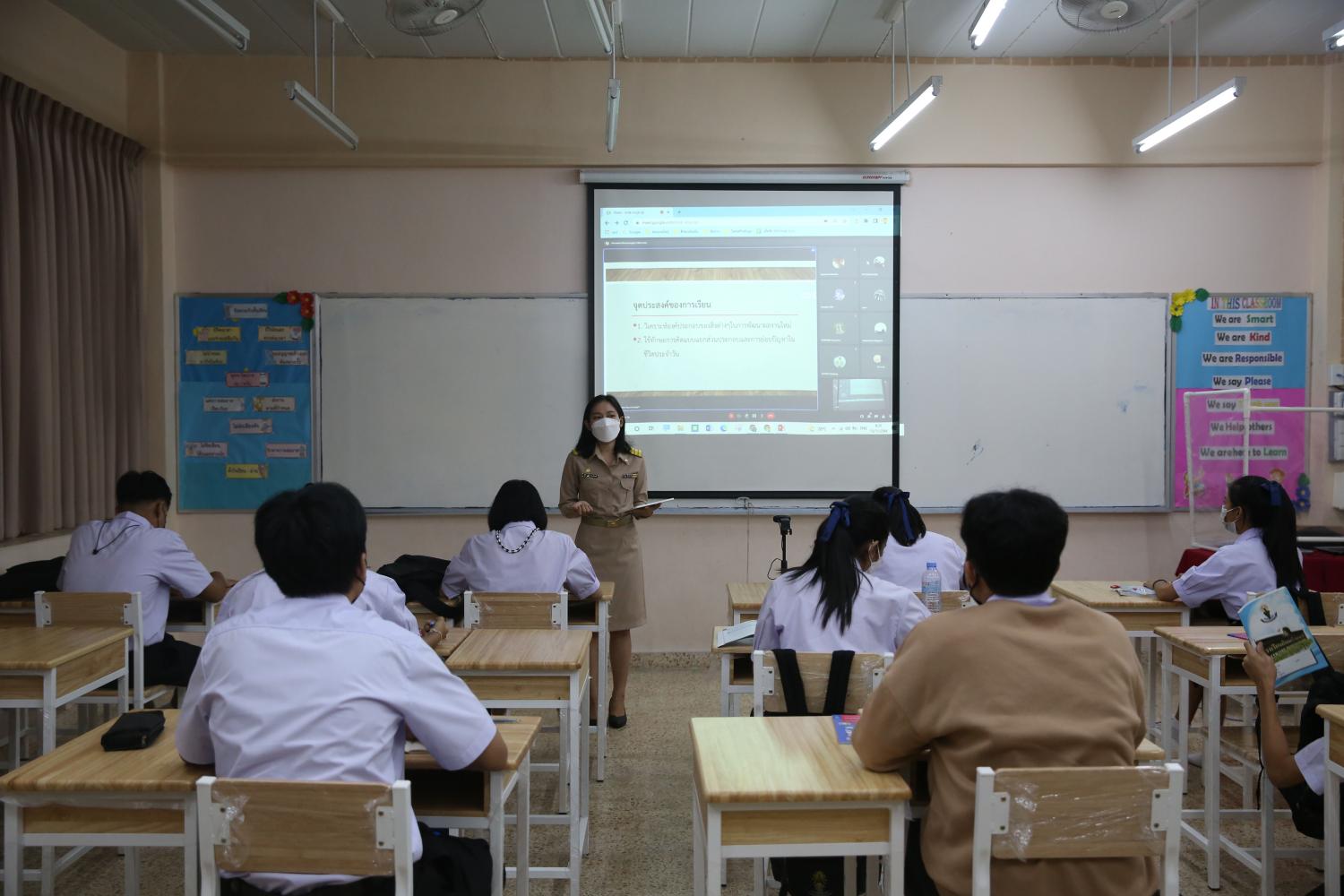
Ten year-old Kaemsai Simasan's smile faded away when she learned from her mother that she can't yet return to her class after New Year. The school is still closed as parents are worried about infections from the Omicron variant.
"I really miss my friends," she said.
For her, it was no fun to watch teachers on an iPad all day while attending online classes at home.
"It hurt my eyes," she said. Her mother, Siwipa, was also concerned about her child's health. She was afraid that her child would develop eyesight problems.
Since the pandemic began two years ago, schools have gone back and forth between on-site and online classes.

Adisak: Promote homeschooling
Many parents do not want schools to close again, while teachers prefer on-site classrooms and do not want to go online unless the Education Ministry tells them to do so.
On-and-off school is a norm
Education Minister Trinuch Thienthong has announced a work from home policy until Jan 14 to respond to a new wave of coronavirus infections fuelled by the Omicron variant.
Ms Trinuch leaves the decision whether to resume on-site learning to the more than 12,000 schools across the country.
However, she said these schools must strictly follow Covid-19 measures known as the Sandbox Safety Zone that include requirements for social distancing, wearing masks at all times and antigen testing of students, teachers and staff.
Since the beginning of October, about 6.5 million vaccine shots have been provided to students aged 12–18, allowing them to return to school. The government will roll out vaccines for children aged 5–11 next month.
Usa Somboon, president of the International Schools Association of Thailand (ISAT) and the International School Bangkok (ISB), said the Omicron variant puts no extra pressure on international school Covid-19 preventative measures.
International schools, which reopened their doors in early November, were strictly monitoring for any positive Covid cases.
Ms Usa said schools would follow the government's Covid-19 prevention measures.
"We have learned that face-to-face teaching and learning are precious and far more preferential than the online option.
"However, we are also committed to following government restrictions, including campus closures," she said.
On a positive note, schools are much better at online teaching than they were in 2020, but it is not the preferred medium for instruction, Ms Usa said.

Students learn their lesson outside classroom, following the nature-based approach implemented at National Institute for Child and Family Development (NICFD), Mahidol University.
The last two rounds of closures proved that online learning was not effective for all students.
When school reopened in October, it took some time for teachers to raise the standard of learning, skills and participation to the school's norm, she said.
For this year, the ISAT president is certain it will be another year of on-and-off campus education. Still, schools prefer on-site classes.
"We all agree, from educators to teachers and parents and most importantly our students, that optimal learning takes place in the classroom, not at home, so we remain steadfast about the need to keep our schools safely open.
"The Omicron variant seems to spread more quickly but we are confident with our existing Covid-19 preventative measures that international schools can remain open, heading into term two," she said.
The digital divide will remain
During the past two years, schools have had to adopt new technologies for online classes.
Some made progress in this regard by introducing interactive classes or integrating virtual reality or 3D technologies in their classes, while others may have been slower to catch up, leaving many students lacking the tools needed to attend online classes. Some have even decided to drop out.
In response, the Education Ministry has announced a policy to bring back those students as well as introduce additional programmes to attract underprivileged students to study under the formal education system.

Trinuch: Students lacking access
"We believe education is a necessary tool to shape the students' future. We will provide more opportunities for them," said Ms Trinuch.
The Office of the Basic Education Commission will work with the Office of Non-Formal and Informal Education and the Office of the Vocational Education Commission.
In the meantime, the Office of Non-Formal and Informal Education will organise a caravan to bring education tools, toys, sports equipment, food and other necessities to 46,400 students living in remote areas.
The Office of the Vocational Education Commission, meanwhile, will offer three-year scholarships to 5,000 students.
In addition, the ministry plans to launch a Career & Entrepreneurship Centre (CEC) in every province to enhance skills for at least 500,000 people to boost their chances of getting a job.

Since the second semester, starting in last November, schools allow 50% of the number of vaccinated students to study onsite while the remaining students join the class online.
Connecting with nature
During the pandemic, students were widely affected by school closures, but the impact on those who do homeschooling was less severe, said Assoc Prof Dr Adisak Plitponkarnpim, director of National Institute for Child and Family Development (NICFD) of Mahidol University.
"Policymakers should help promote home-based education and support a hybrid learning approach," he said, adding the approach consists of online and traditional face-to-face learning.
For example, the NICFD has facilities for homeschooling students to join on-site classes for some subjects such as language, science and mathematics to take advantage of the facilities available at schools.
The NICFD also offers activity-based learning programmes to enhance the skills of students.
"Children can study at home and, in the meantime, use our facilities to further develop their skills.
"This is the format that the education of the future should take, whether we will have another pandemic or face other situations," he said.
In addition, Dr Adisak said the education system should gear towards nature-based education.
The approach is important for young students, especially preschool children aged 1–6 years old.
NICFD implemented the approach last year. Its programme allows young children to spend most of their time learning outside the classroom.
"Several problems we have faced occurred because of the imbalance in nature caused by humans. We need to teach our young children to immerse themselves in nature."